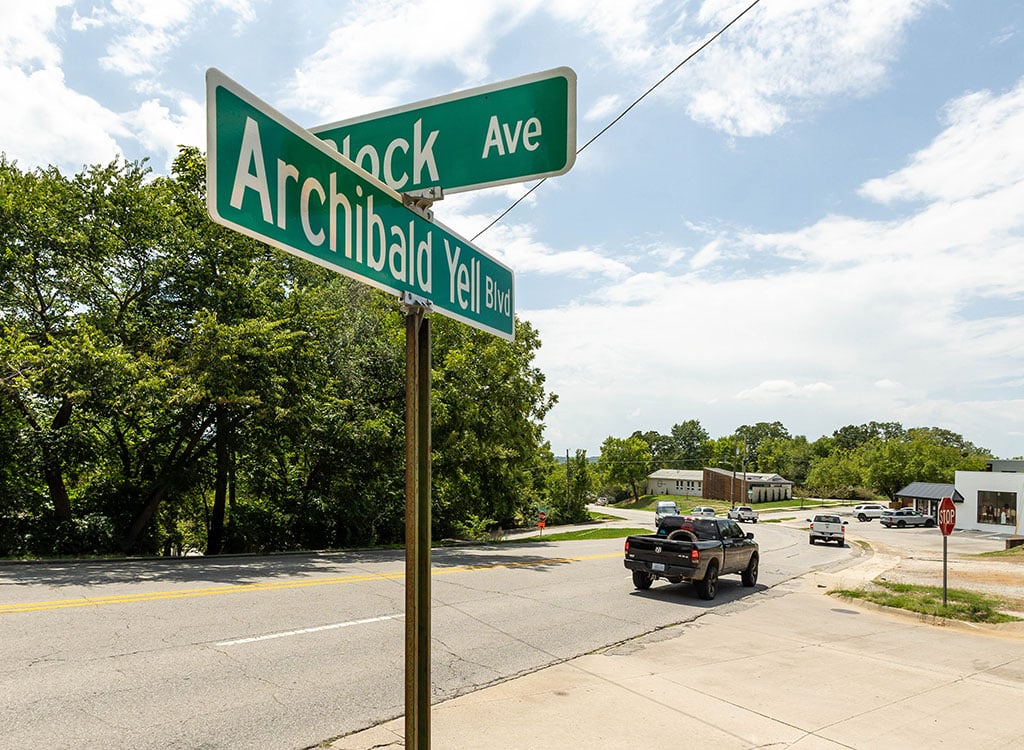 Traffic passes along Archibald Yell Boulevard near Block Avenue on Aug. 8, 2022. (Todd Gill/Fayetteville Flyer)
Traffic passes along Archibald Yell Boulevard near Block Avenue on Aug. 8, 2022. (Todd Gill/Fayetteville Flyer)City officials are set to host an historical marker dedication commemorating Nelson Hackett, an enslaved man who fled Fayetteville in 1841 in search of freedom.
The event is set for 6 p.m. Friday, June 16 at the northwest corner of the downtown square where a plaque will be placed honoring Hackett, whose attempted escape from slavery set off an international dispute that eventually helped ensure Canada would remain a safe haven for people who were fleeing enslavement in the United States.
Fayetteville Mayor Lioneld Jordan and JL Jennings, chair of the city’s Black Heritage Preservation Commission, will speak during the event.
The city is also set to unveil new street signs as part of the name change of Archibald Yell Boulevard to Nelson Hackett Boulevard, which the City Council approved last year.
Officials said part of the square will be blocked off to traffic during the event, so attendees should plan to access nearby parking from alternate routes.
Hackett’s journey is documented by the Nelson Hackett Project, an effort by the University of Arkansas’s Department of History to bring more attention to the story.
After fleeing Fayetteville, Hackett traveled to Canada, which had recently abolished slavery and was under British rule at the time. Instead of finding freedom, Hackett was accused of theft by a man who claimed to own him in Fayetteville. While abolitionists called on Canada to give Hackett his freedom, supporters of slavery insisted that he be returned to the United States. Eventually, Arkansas Gov. Archibald Yell formally requested that Hackett be returned to Fayetteville, and when that request was granted, Hackett was publicly whipped, tortured and sold back into slavery in Texas.
The British government eventually passed laws that made similar extraditions much more difficult in an effort to prevent setting a precedent that encouraged slave owners to make accusations of offenses in order to reclaim enslaved people.

